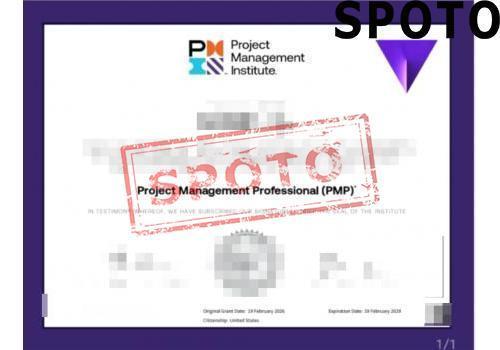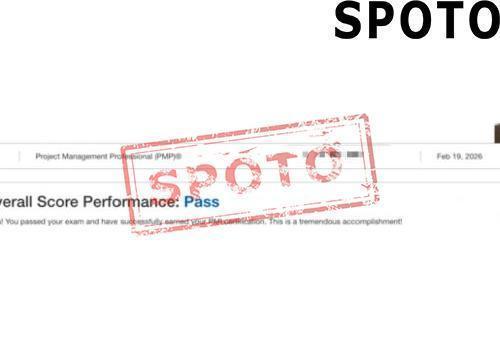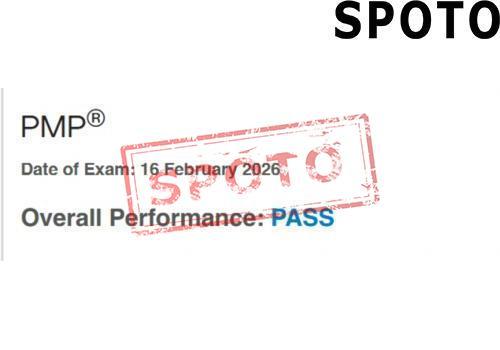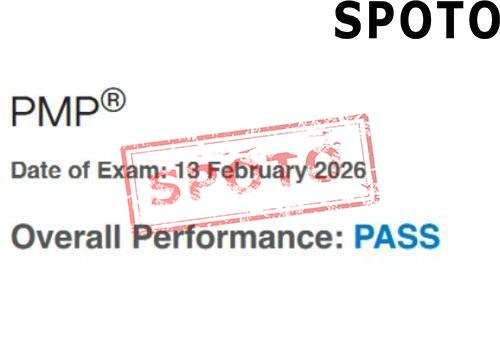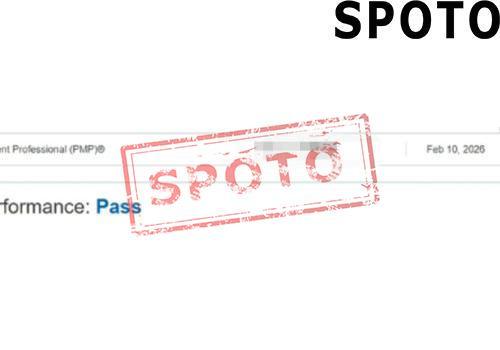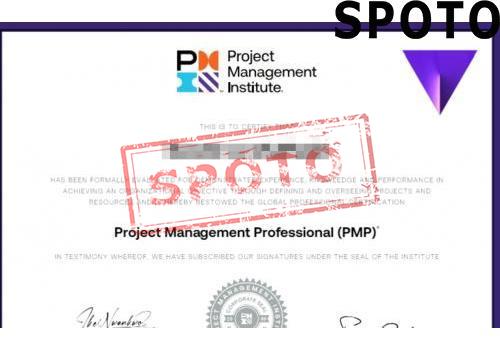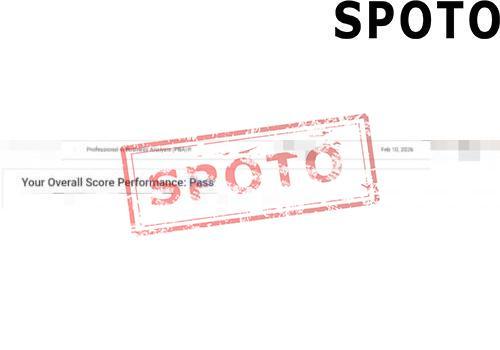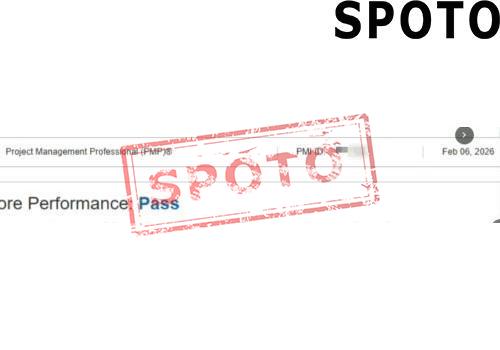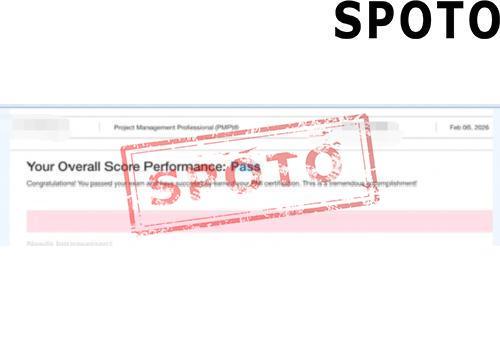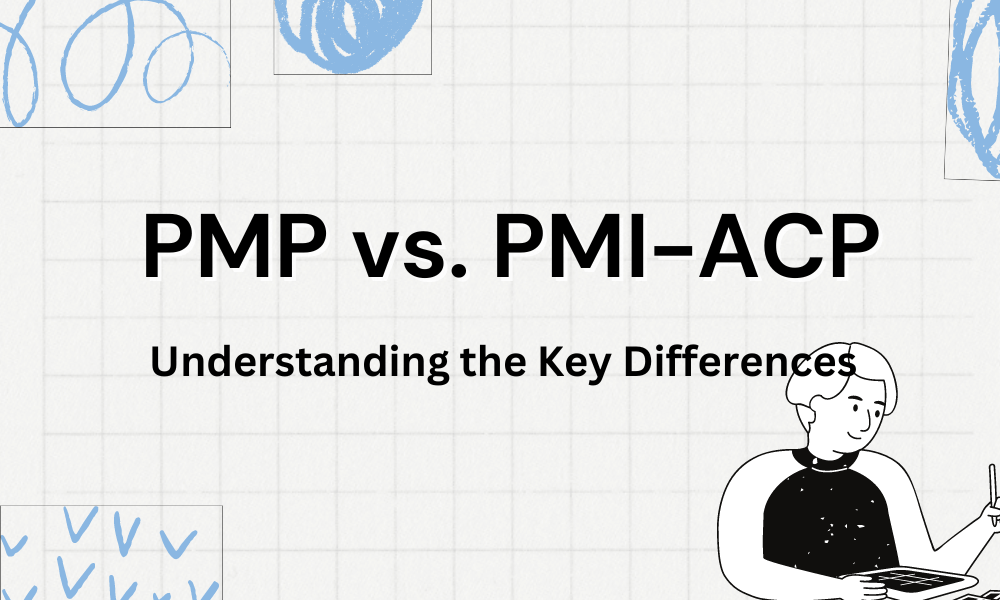
Table of Contents
Introduction
Project Management Professional (PMP) and PMI Agile Certified Practitioner (PMI-ACP) are two widely recognized certifications in the field of project management. While both certifications focus on project management, they have distinct differences in their approach, methodologies, and target audience. Understanding the differences between PMP and PMI-ACP is essential for professionals looking to advance their career in project management and agile practices. In this blog, we will explore and compare the key differences between PMP and PMI-ACP certifications to help individuals make informed decisions about which certification aligns with their career goals and aspirations.
PMP (Project Management Professional) Certification
What is PMP certification?
The Project Management Professional (PMP) certification is a globally recognized designation that attests to an individual's proficiency and competence in project management. It involves a rigorous examination process that tests candidates on five cornerstone process groups - initiating, planning, executing, monitoring and controlling, and closing projects.
Eligibility criteria
To become eligible for PMP, candidates should possess either a secondary degree with 7,500 hours of experience leading and directing projects or a four-year degree with 4,500 hours of such experience. Additionally, formal project management education to the tune of 35 contact hours is a prerequisite.
Exam structure and format
The PMP examination comprises 200 multiple-choice questions that need to be completed within four hours. The questions revolve around predictive, agile, and hybrid methodologies, with a greater emphasis on the latter two in the latest exam format.
Key areas covered in the exam
The examination explores three primary domains - people (42%), process (50%), and business environment (8%). Each domain is further fractured into tasks and enablers.
Test Your Readiness with SPOTO's Free Exam Prep Check!
PMI-ACP (Agile Certified Practitioner) Certification
What is PMI-ACP certification?
The PMI- Agile Certified Practitioner (PMI-ACP) recognizes expertise in applying agile principles and techniques in project management. It stands out as one of the fastest-growing certifications under the PMI umbrella and is appreciated for its broad coverage of agile methodologies.
Eligibility criteria
As part of the eligibility criteria, candidates need to have either a secondary degree with 2,000 hours of general project experience and 1,500 hours working on agile project teams, or they should possess four-year degree with 2,000 hours working on project teams, and an additional 1,500 hours working on agile project teams. 21 contact hours of training in agile practices is a must-have.
Exam structure and format
The PMI-ACP exam consists of 120 multiple-choice questions spanned over three hours and covers various areas including agile principles, agile tools and techniques, and knowledge and skills.
Key areas covered in the exam
The primary areas the exam scrutinizes include Agile principles and mindset, value-driven delivery, stakeholder engagement, team performance, adaptive planning, problem detection and resolution, and continuous improvement.
Test Your Readiness with SPOTO's Free Exam Prep Check!
Comparison of PMP and PMI-ACP Certifications
When considering the PMP (Project Management Professional) and PMI-ACP (PMI Agile Certified Practitioner) certifications, it's important to understand the differences and similarities between the two.
The PMP certification is focused on traditional project management practices and is ideal for professionals who work in a more structured, waterfall approach to project management. It covers areas such as project integration, scope, time, cost, quality, human resources, communication, risk, procurement, and stakeholder management.
On the other hand, the PMI-ACP certification is tailored for professionals who work in agile environments. It encompasses a wide range of agile methodologies such as Scrum, Kanban, Lean, extreme programming (XP), and test-driven development (TDD). This certification is ideal for those who are involved in agile project management practices and want to demonstrate their proficiency in this area.
Both certifications require a certain amount of project management experience and education, but the focus and approach are different. Ultimately, the choice between the two certifications depends on the individual's career goals and the type of projects they are involved in.
Choosing the Right Certification
Choosing a suitable Project Manager Certification can be a crucial decision for your career growth and professional development. With the increasing demand for project management skills in various industries, it's important to select a certification that aligns with your career goals and provides the necessary knowledge and expertise.
When considering a Project Manager Certification, it's essential to research and compare different certification programs to find the best fit for your needs. Some key factors to consider include the reputation and recognition of the certification, the specific skills and knowledge covered in the program, the eligibility requirements, the exam format, and the ongoing professional development opportunities.
Additionally, it's important to consider the industry or sector in which you work or aspire to work in, as certain certifications may be more valued or relevant in specific fields. For example, the Project Management Professional (PMP) certification is widely recognized and respected in various industries, while the Certified ScrumMaster (CSM) certification is more focused on agile project management methodologies.
Furthermore, it's beneficial to seek advice from experienced project managers or mentors who have obtained different certifications to gain insights into their experiences and the value of their certifications in the job market.
Ultimately, the right Project Manager Certification for you will depend on your career aspirations, current skill set, and industry preferences. Taking the time to thoroughly research and evaluate your options will help you make an informed decision that will benefit your career advancement in project management.
Conclusion
Navigating the labyrinth of project management certifications can be an advanced task. Ultimately, a clear understanding of the divergences between PMP and PMI-ACP is crucial in influencing your career trajectory. Profound research and introspection into individual career goals will guide you in choosing the certification that will drive your project management career to new heights. In the comparison of PMP vs. PMI-ACP, the winner is determined by personal preference, industry requirement, and career aspirations.
